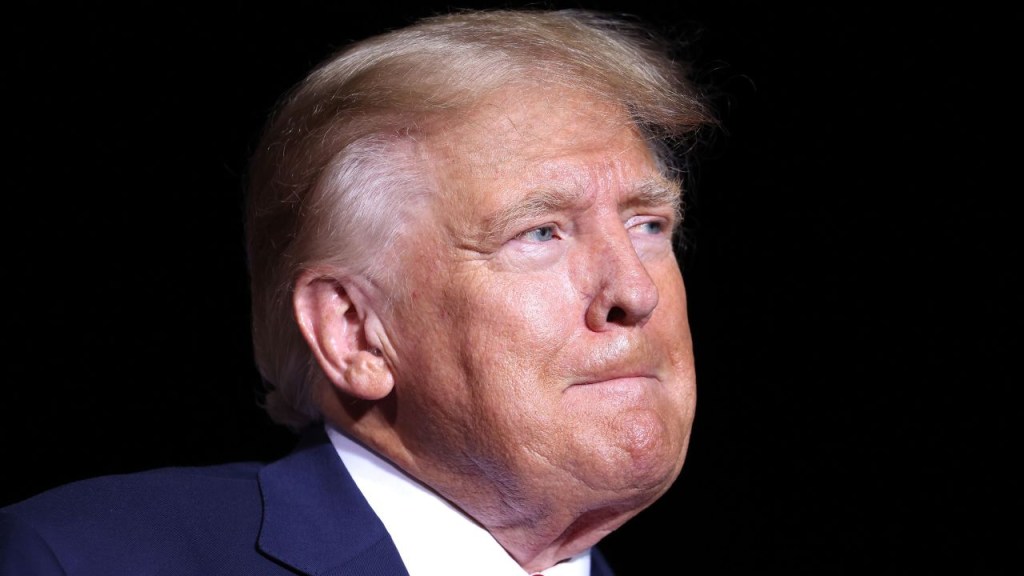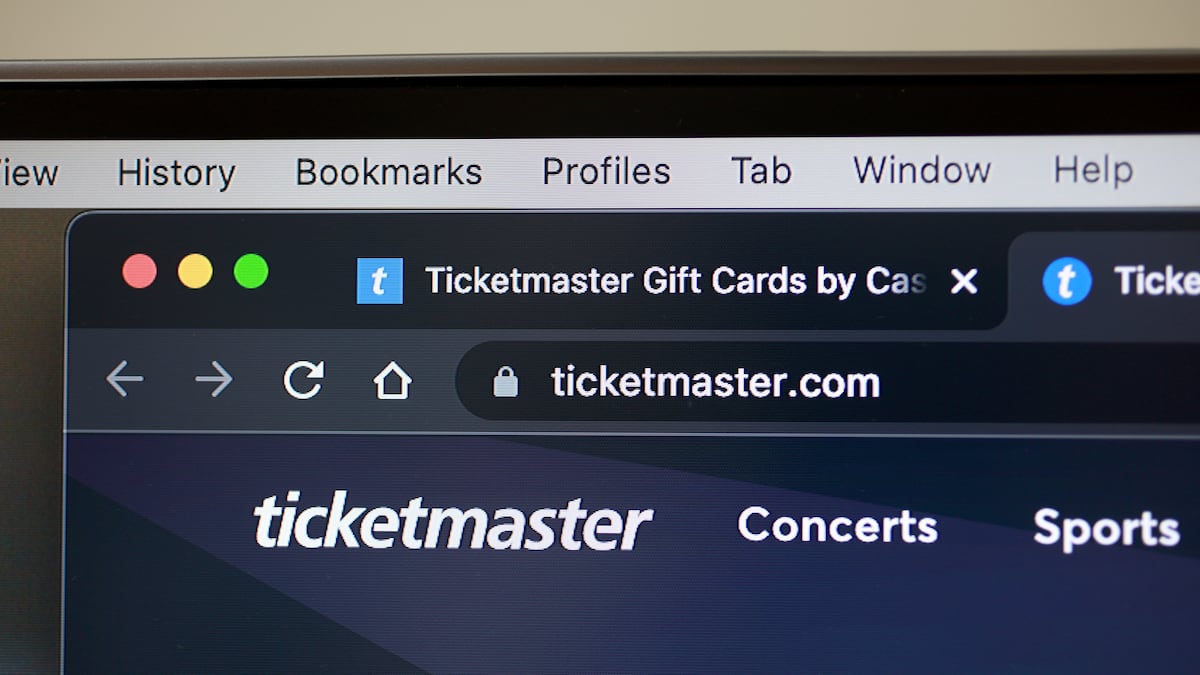The Zuckerberg-Trump Dynamic: Implications For The Future

Table of Contents
Facebook's Role in the 2016 Election and Beyond
Facebook's role in the 2016 US Presidential election, and its ongoing relationship with Donald Trump, remains a subject of intense scrutiny and debate. The platform's influence on the outcome of the election, and its subsequent handling of misinformation and political advertising, have raised serious questions about its responsibility in shaping public opinion.
Cambridge Analytica Scandal and its Fallout
The Cambridge Analytica scandal exposed the vulnerability of Facebook's user data and its potential misuse for political manipulation. This data harvesting operation, which improperly obtained personal information from millions of Facebook users, severely damaged public trust in Facebook's data handling practices and its commitment to user privacy. The scandal led to numerous investigations, regulatory consequences, and a significant erosion of public confidence in the platform's ability to protect user data.
- Data breaches: The scandal highlighted the ease with which personal data could be harvested from Facebook, raising serious concerns about data security.
- User privacy concerns: The incident intensified debates about user privacy rights and the responsibilities of social media platforms to protect user data.
- Erosion of trust: The scandal significantly diminished public trust in Facebook, impacting its reputation and user engagement.
- Regulatory fines: Facebook faced substantial fines and regulatory scrutiny in multiple jurisdictions following the scandal.
The Spread of Misinformation and Political Advertising
Facebook's algorithms, designed to maximize user engagement, inadvertently contributed to the spread of misinformation and propaganda during the 2016 election. The platform's vast reach and sophisticated targeting capabilities made it an ideal tool for disseminating false narratives and influencing voter behavior. The challenges of regulating political advertising on social media platforms remain a significant concern.
- Targeted advertising: The ability to target specific demographics with tailored political messages amplified the impact of misinformation campaigns.
- Foreign interference: The scandal revealed the extent to which foreign actors exploited Facebook to interfere in the election process.
- Deepfakes: The increasing sophistication of deepfake technology poses a growing threat to the integrity of online political discourse.
- Fact-checking initiatives: Facebook has implemented fact-checking initiatives, but their effectiveness remains a subject of debate.
Trump's Use of Facebook as a Political Weapon
Donald Trump leveraged Facebook as a powerful tool to communicate directly with his supporters, bypassing traditional media outlets and fostering a direct connection with his base. This strategy contributed to the polarization of American politics and the creation of echo chambers online.
- Direct communication: Trump's frequent Facebook posts allowed him to directly address his supporters, shaping public opinion without the filter of traditional media.
- Bypassing traditional media: This direct communication strategy undermined the role of traditional journalism and created a parallel information ecosystem.
- Influence on public opinion: Trump's Facebook posts significantly influenced public opinion and shaped the political narrative.
- Echo chambers: The platform's algorithms contributed to the creation of echo chambers, reinforcing pre-existing biases and limiting exposure to diverse perspectives.
The Power Struggle Between Zuckerberg and Trump
The relationship between Zuckerberg and Trump was characterized by a constant tension between Facebook's content moderation policies and Trump's claims of censorship. This power struggle highlights the broader challenges of balancing free speech principles with the need to combat harmful content online.
Content Moderation and Free Speech Debates
Facebook's attempts to moderate content, including fact-checking and the removal of posts deemed harmful, frequently clashed with Trump's pronouncements against censorship. This ongoing debate underscores the inherent difficulties in defining and regulating harmful content while upholding free speech principles.
- Fact-checking: Facebook's fact-checking initiatives sparked controversies, with accusations of bias and censorship.
- Hate speech: The definition and regulation of hate speech on social media platforms remain highly contentious issues.
- Censorship controversies: Facebook's actions regarding content moderation have led to accusations of censorship from various political viewpoints.
- First Amendment implications: The debate about content moderation raises complex questions about the First Amendment and the role of private companies in regulating speech.
Facebook's Response to Trump's Actions
Facebook's decisions regarding Trump's account following the January 6th Capitol riot—culminating in a permanent ban—marked a significant turning point in the Zuckerberg-Trump dynamic. These decisions set important precedents for social media platforms and their responsibilities in managing political discourse.
- Account suspension: The temporary suspension of Trump's account was followed by a permanent ban.
- Permanent ban: The decision to permanently ban Trump set a precedent for other platforms and raised questions about the power of social media companies to influence political discourse.
- Impact on political speech: The ban sparked widespread debate about the limits of free speech on social media platforms.
- Setting precedents: Facebook's actions set important precedents for how social media companies manage political figures and controversial content.
Long-Term Implications of the Zuckerberg-Trump Dynamic
The Zuckerberg-Trump dynamic has profound long-term implications for the future of social media regulation, democratic processes, and the broader relationship between technology and politics.
The Future of Social Media Regulation
The controversies surrounding Facebook and its relationship with Trump have spurred calls for increased regulation of social media platforms. However, the challenges of regulating global social media companies remain significant.
- Section 230 reform: Debates about reforming Section 230 of the Communications Decency Act continue to shape the regulatory landscape.
- Antitrust legislation: Concerns about the monopolistic power of social media companies have fueled calls for antitrust action.
- Data privacy laws: The need for stronger data privacy laws is increasingly recognized in response to data breaches and misuse.
- International cooperation: Effective regulation of social media requires international cooperation due to their global reach.
The Impact on Democratic Processes
The Zuckerberg-Trump dynamic highlights the vulnerability of democratic processes to manipulation through social media. The spread of disinformation, the creation of echo chambers, and the erosion of trust in institutions pose serious threats to political stability.
- Erosion of trust in institutions: The spread of misinformation has eroded public trust in institutions, including the media and government.
- Impact on elections: The influence of social media on election outcomes remains a major concern.
- Spread of disinformation: The ease with which disinformation can spread online poses a significant threat to democratic processes.
- Political stability: The potential for social unrest and political instability fueled by social media manipulation is a serious concern.
Conclusion
The Zuckerberg-Trump dynamic represents a critical juncture in the relationship between technology, politics, and society. Understanding the power struggles, the role of social media in shaping public opinion, and the ongoing debates around content moderation is crucial for navigating the future of digital democracy. The implications of this complex relationship are far-reaching and demand continued scrutiny. To stay informed about the evolving Zuckerberg-Trump dynamic and its impact on our world, continue researching and engaging in critical discussions on the topic. Understanding this dynamic is vital for shaping a more responsible and informed digital future.

Featured Posts
-
 Pimbletts Surprise Pick For Jones Vs Aspinall Ufc Heavyweight Bout
May 30, 2025
Pimbletts Surprise Pick For Jones Vs Aspinall Ufc Heavyweight Bout
May 30, 2025 -
 Een Goed Bod Een Onmogelijkheid Voor Anderlecht
May 30, 2025
Een Goed Bod Een Onmogelijkheid Voor Anderlecht
May 30, 2025 -
 Des Moines Police Investigate Car Crash Vehicle On Its Side
May 30, 2025
Des Moines Police Investigate Car Crash Vehicle On Its Side
May 30, 2025 -
 Record Transfer On The Cards Real Madrids Interest In Man United Player
May 30, 2025
Record Transfer On The Cards Real Madrids Interest In Man United Player
May 30, 2025 -
 Como Obtener Tu Reembolso De Ticketmaster Por La Cancelacion Del Festival Axe Ceremonia 2025
May 30, 2025
Como Obtener Tu Reembolso De Ticketmaster Por La Cancelacion Del Festival Axe Ceremonia 2025
May 30, 2025
Latest Posts
-
 Previewing The 2025 Pro Motocross Season
May 31, 2025
Previewing The 2025 Pro Motocross Season
May 31, 2025 -
 2025 Pro Motocross Championship What To Expect
May 31, 2025
2025 Pro Motocross Championship What To Expect
May 31, 2025 -
 Love Moto Stop Cancer 2025 Online Auction Items Up For Bid
May 31, 2025
Love Moto Stop Cancer 2025 Online Auction Items Up For Bid
May 31, 2025 -
 Pro Motocross 2025 Riders Teams And Predictions
May 31, 2025
Pro Motocross 2025 Riders Teams And Predictions
May 31, 2025 -
 Get Ready Supercross Returns To Salt Lake City
May 31, 2025
Get Ready Supercross Returns To Salt Lake City
May 31, 2025
